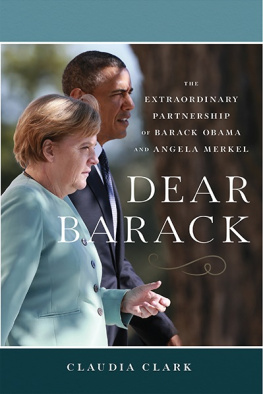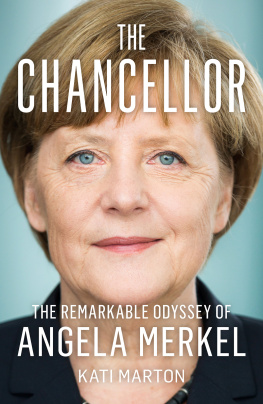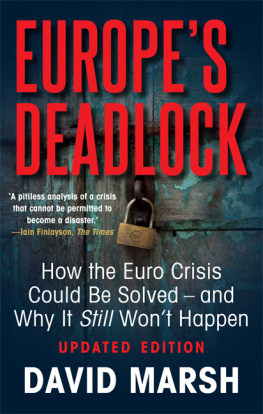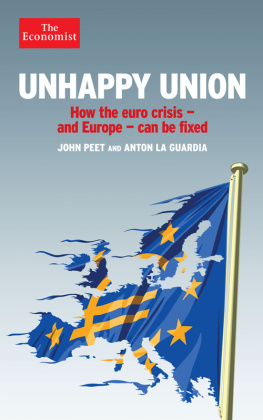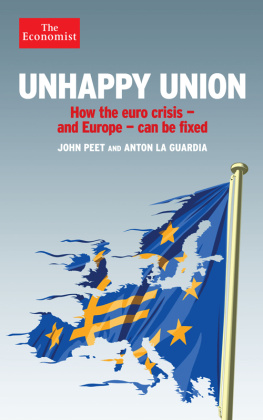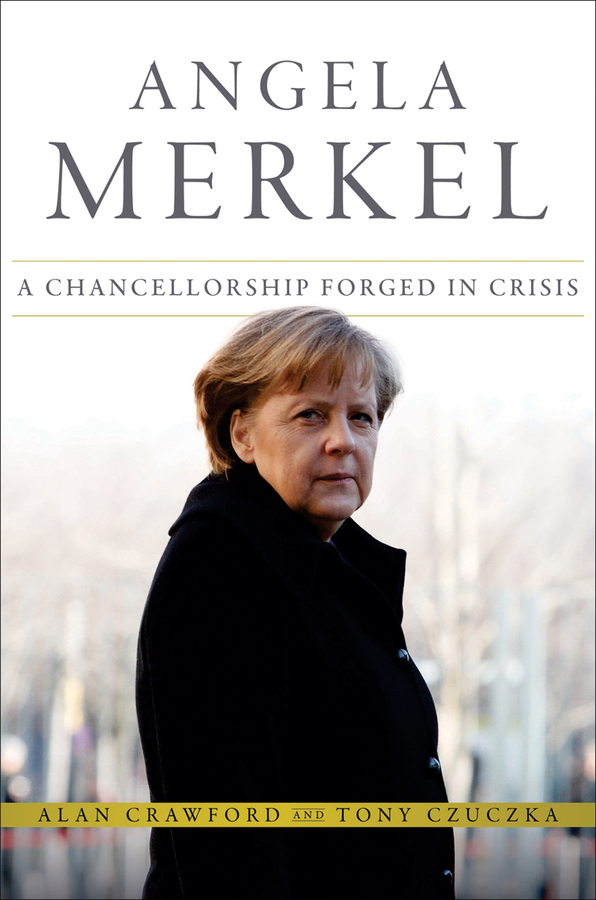Contents
Since 1996, Bloomberg Press has published books for financial professionals as well as books of general interest in investing, economics, current affairs, and policy affecting investors and business people. Titles are written by well-known practitioners, BLOOMBERG NEWS reporters and columnists, and other leading authorities and journalists. Bloomberg Press books have been translated into more than 20 languages.
For a list of available titles, please visit our website at www.wiley.com/go/bloombergpress .

This edition first published 2013
2013 Alan Crawford and Tony Czuczka
Registered office
John Wiley & Sons Ltd, The Atrium, Southern Gate, Chichester, West Sussex, PO19 8SQ, United Kingdom
For details of our global editorial offices, for customer services and for information about how to apply for permission to reuse the copyright material in this book please see our website at www.wiley.com .
All rights reserved. No part of this publication may be reproduced, stored in a retrieval system, or transmitted, in any form or by any means, electronic, mechanical, photocopying, recording or otherwise, except as permitted by the UK Copyright, Designs and Patents Act 1988, without the prior permission of the publisher.
Wiley publishes in a variety of print and electronic formats and by print-on-demand. Some material included with standard print versions of this book may not be included in e-books or in print-on-demand. If this book refers to media such as a CD or DVD that is not included in the version you purchased, you may download this material at http://booksupport.wiley.com . For more information about Wiley products, visit www.wiley.com .
Designations used by companies to distinguish their products are often claimed as trademarks. All brand names and product names used in this book are trade names, service marks, trademarks or registered trademarks of their respective owners. The publisher is not associated with any product or vendor mentioned in this book.
Limit of Liability/Disclaimer of Warranty: While the publisher and author have used their best efforts in preparing this book, they make no representations or warranties with the respect to the accuracy or completeness of the contents of this book and specifically disclaim any implied warranties of merchantability or fitness for a particular purpose. It is sold on the understanding that the publisher is not engaged in rendering professional services and neither the publisher nor the author shall be liable for damages arising herefrom. If professional advice or other expert assistance is required, the services of a competent professional should be sought.
Library of Congress Cataloging-in-Publication Data
Crawford, Alan.
Angela Merkel: a chancellorship forged in crisis / Alan Crawford and Tony Czuczka.
pages cm
Includes index.
ISBN 978-1-118-64110-1 (cloth)
1. Financial crisesGermanyHistory21st century. 2. GermanyEconomic policy1990- 3. Merkel, Angela, 1954- 4. Heads of stateGermany. I. Czuczka, Tony, 1959- II. Title.
HB3789.C73 2013
943.0883092dc23
[B] 2013011633
A catalogue record for this book is available from the British Library.
ISBN 978-1-118-64110-1 (hardback) ISBN 978-1-118-64107-1 (ebk)
ISBN 978-1-118-64109-5 (ebk) ISBN 978-1-118-64108-8 (ebk)
Acknowledgements
The idea for this book was hatched during a European Union summit in Brussels, but it was in a bar adjacent to the former U.S. Embassy building in Berlin that the opportunity to write it first became reality. After nearly three years of turmoil, the story of Angela Merkel and Europes debt crisis had reached critical mass. As our colleague John Fraher, one of Bloombergs managing editors, put it: The planets had aligned and now was the time to grasp our chance. Within two days we were at our writing desks, suddenly realizing the magnitude of the project.
We set about it armed with our own reporting from across Europe before and during the crisis; we re-examined speeches, trawled through public comments, mined archives and interviewed key participants in Berlin, Paris, Athens, Washington and elsewhere. The nature of any book examining the most powerful political figure in Europe, a serving leader, means that many of those who know the most are reluctant to speak openly. As a result, this work is based partly on discussions with European and U.S. officials who declined to be named, yet were important to portraying their sides version of events. Though we agreed not to identify them by name, we wish to thank them for their contribution.
First and foremost, we would like to thank Bloombergs editor in chief, Matt Winkler, who approved our project and whose interest in the German chancellor was indispensable to making it happen. This book is a collaborative effort, which means its also a tribute to the depth of knowledge and reporting by Bloomberg journalists worldwide. We had access to the expertise and articles of colleagues in the government and economy teams, but also in bonds, finance and currencies, in Europe and in the U.S., in print, television and the pictures department. Our thanks goes to them all. Notably, we wish to thank the government team in Berlin Leon Mangasarian, Brian Parkin, Rainer Buergin and Patrick Donahue who covered for our three-month absence without complaint during a time of crisis, literally. Leon and Stefan Nicola conducted interviews of two German officials that we gratefully included. Special thanks go to Maria Petrakis, Simon Kennedy, Jana Randow and Helene Fouquet for their help in providing contacts. We would never have gotten to that stage had it not been for the backing of Reto Gregori, Bloombergs chief of staff, who provided the initial encouragement. John Fraher and Dan Moss fixed it for us to embark on the project, providing us with the time and travel needed. Our thanks also to Jim Hertling, whose spirited leadership of European government news and enthusiasm for the German story kept pushing Bloomberg to stay ahead of the pack.
Having the Bloomberg name behind the project opened doors. Many of those we spoke to did so because they trusted Bloomberg to paint an accurate picture of what happened during the crisis that almost brought the euro area to its knees. We hope that we measure up to those standards. We would like to single out Xavier Musca and Angel Gurria in Paris, who gave us the confidence at the outset that we were on the right track, and George Papaconstantinou, who graciously invited us into his home in Athens. Holger Schmieding and Carsten Brzeski gave us valuable feedback on substance and style. Our Bloomberg Muse team colleague Catherine Hickley offered key advice that greatly helped us to fashion the end product. Finally, we wish to thank our families Judith, Freya and Magnus; Barbara and Adrian for their resilience in the face of often absent and regularly moody husbands and fathers all through the tumultuous times of crisis culminating in the writing of this book. Judith Crawford, a political scientist and artist who grew up in East Germany, taught her husband about the true resonance of Europe. Barbara Kramar, Tonys wife and inspiration, spurred him with her energy, understanding of the euros significance and feel for the nexus between politics and human nature. We dedicate this book to them.






